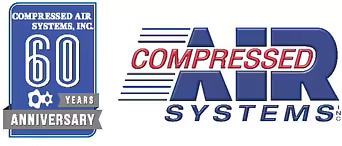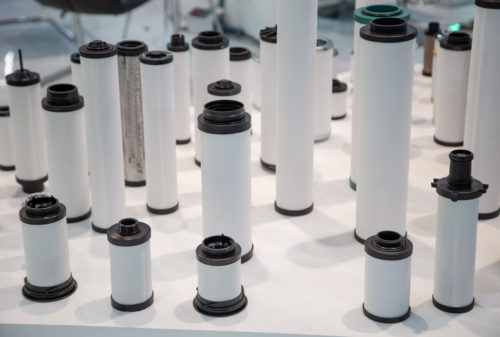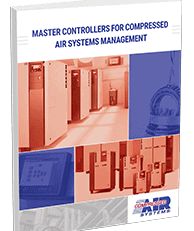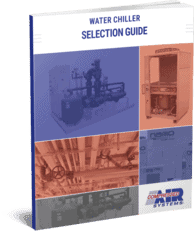The Role of Differential Pressure Gauges in Maintaining Air Quality
Comments Off on The Role of Differential Pressure Gauges in Maintaining Air QualityWhat Is a Differential Pressure Gauge?
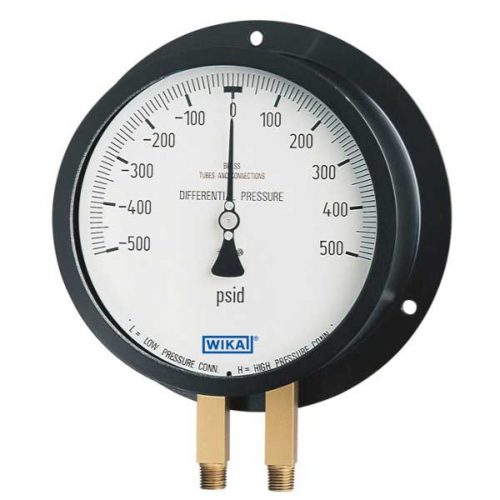 Differential pressure—also referred to as DP or ∆p—describes the difference in pressure between two specified points. In process systems, unexpected fluctuations in this value can mean a component needs maintenance, repair, or replacement. For this reason, knowing and understanding current DP levels is essential to ensuring equipment remains in proper working order and operations proceed smoothly.
Differential pressure—also referred to as DP or ∆p—describes the difference in pressure between two specified points. In process systems, unexpected fluctuations in this value can mean a component needs maintenance, repair, or replacement. For this reason, knowing and understanding current DP levels is essential to ensuring equipment remains in proper working order and operations proceed smoothly.
One of the primary tools used for this purpose is differential pressure gauges—also known as differential pressure indicators. These instruments are designed specifically to measure the difference in pressure between two pressure points or connections within a system and provide a visual indication of the results.
Monitoring Air Filter Status Using a Differential Pressure Gauge
The filter is a key component of many compressed air systems. It removes contaminants from air coming into the system to ensure the air exiting the system is clean and safe for use. Its function results in a natural difference in pressure between the inlet and outlet sides. However, as it becomes clogged over time, the differential pressure increases.
System operators can use a differential pressure gauge to monitor this change and determine if and when their filter system has reached the point where it must be replaced. There are many benefits to using this filter monitoring method over others, such as helping operators remain aware of the current status of their filter and encouraging operators to replace filters once they exceed the manufacturer-recommended operating life.
Common Misunderstandings About Differential Pressure Gauges
Differential pressure gauges are often fitted to the filter housings of compressed air systems to facilitate filter status monitoring operations. Despite their ubiquity, there are many misunderstandings about them. Below, we debunk some of the most common myths.
Myth 1: Differential pressure is an indication of air quality. Therefore, a DP gauge is an air quality indicator.
Fact: Filters are used to remove contaminants from the air flowing into compressed air systems. Differential pressure is directly related to the condition of the filter element (i.e., more contamination buildup means more differential pressure between the inlet and outlet sides). However, it is not directly related to the quality of the outgoing air (i.e., high or low differential does not mean more or less contaminants in the outgoing air).
Myth 2: My filter has a differential pressure gauge to indicate when I should change my filter element.
Fact: Compressed air filters are often fitted with a DP monitor or indicator. However, these elements are not considered true DP gauges; they are typically less accurate (±25%) and uncalibrated. As such, they should only be used as a premature blockage indicator rather than a service indicator.
Myth 3: Compressed air filter elements should only be changed when the differential pressure increases.
Fact: In compressed air systems, differential pressure is a measurement of pressure loss. The air compressor must often operate at higher pressures or for long periods of time to overcome differences in pressure, which can show fluctuations in differential pressure regardless of the condition of the filter element. In addition, any holes or tears in the filter would prevent the differential pressure from registering a change, even if the filter were clogged.
Differential Pressure Gauges: Keeping Your Air Quality in Check
Differential pressure gauges are invaluable tools for monitoring air filter status, which, in turn, is essential to ensuring a compressed air system maintains high air quality standards. To learn more about compressed air filters and other system elements, turn to the experts at Compressed Air Systems.
Our eBook, How to Properly Maintain Compressed Air Filter Elements, provides a comprehensive overview of compressed air filters and how and why to maintain them.
Why Is the Demand for Portable Generators Spiking?
Comments Off on Why Is the Demand for Portable Generators Spiking?Typically small, lightweight, and wheeled, portable generators are a practical solution for operations that involve multiple locations or require the movement of equipment in and around different areas of a single location. While these units have long served as tools in a wide range of industrial, commercial, and residential applications, the demand for them has grown significantly over the past year.
Factors Contributing to the Portable Generator Demand Spike
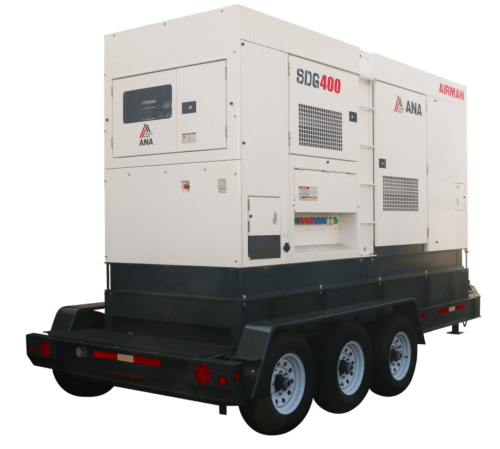 Portable generators are essential for situations where there is no reliable permanent power source available, such as remote job sites or disaster-stricken areas. While they are regularly used for normal operations in the former situation (e.g., agricultural or construction sites), they are generally only used for emergencies in the latter situation (e.g., extreme weather or other catastrophic event response).
Portable generators are essential for situations where there is no reliable permanent power source available, such as remote job sites or disaster-stricken areas. While they are regularly used for normal operations in the former situation (e.g., agricultural or construction sites), they are generally only used for emergencies in the latter situation (e.g., extreme weather or other catastrophic event response).
The recent spike in demand for portable generators is likely attributed to two primary factors, both of which have led to an increase in emergency response efforts:
- Natural Disasters: The 2020 Atlantic hurricane season was the most active on record, with a record-breaking 29 storms. The increased storm rate has led to a significant rise in the demand for portable generators as more and more people take precautions to avoid losing power in vulnerable areas.
- COVID-19: The spread of COVID-19 has led to a substantial rise in hospitalizations. However, many hospitals do not have the resources to handle the patient surge. In response, temporary field hospitals have been set up to manage the overflow. Since these sites are generally not constructed in areas designed for healthcare operations, they often require the use of portable equipment, such as generators, to facilitate patient treatment.
Advantages of Portable Generators
Compared to non-portable generators, portable generators offer a number of advantages, such as:
- Greater convenience. Portable generators allow for power on the go. This ability enables workers to power their equipment and tools wherever they’re needed.
- Lower noise generation. Portable equipment often generates less noise than non-portable variations since it produces and provides less power, which results in a lower risk of auditory injury in workers and passersby.
- Smaller footprint. Portable generators come in a wide range of shapes and sizes, many of which have a compact and lightweight design. These characteristics result in a smaller footprint, which saves on space requirements during use and storage.
- Broader versatility. There are many variations of portable generators available. This wide selection makes it easier for industry professionals to choose one that suits their needs, whether they require small power capacities for small-scale operations or big power capacities for heavy-duty operations.
Portable Generators for Sale at Compressed Air Systems, Inc.
Portable generators play an essential role in many normal and emergency operations. Air compressors are a type of power generator used to power air-powered tools and equipment. For portable air compressors you can trust, turn to the experts at Compressed Air Systems. Whether you’re looking for a new or used portable air compressor, we have the expertise to help you find the right unit for your needs.
To learn more about our air compressor product and service offerings, contact us today.
5 Benefits of Regularly Changing Compressed Air Filter Elements
Comments Off on 5 Benefits of Regularly Changing Compressed Air Filter ElementsCompressed air is critical to an extensive range of industrial and manufacturing processes, including fuel combustion applications, pneumatic tools, filtration systems, metalworking, chemical and petrochemical processing, injection molding, and many others. To ensure optimal air movement and prevent the risk of contamination by particulate matter, compressor systems are typically fitted with a filtration system. These systems require regular maintenance, and compressed air filter elements must be replaced periodically to keep the system operating safely and efficiently.
Why Should I Change My Compressed Air Filter Element?
Compressed air filtration systems typically incorporate a coalescing filter, a dry particulate filter element, or a combination of both. Coalescing filters pull oil and water droplets from the air, while dry particulate filters trap particulate matter such as dust particles and microbes. Both methods require the use of a removable filter element, usually in the form of a cartridge. Due to the harsh conditions typical in an industrial compressed air filtration system, a filter element must be able to withstand:
- Broad pressure fluctuations
- Extreme temperatures
- Varying air speeds
- Corrosive chemicals
- Extreme humidity variation
Over time, these conditions cause degradation of the filter element, damaging its ability to properly remove contaminants. To ensure optimum performance, filter media must be replaced regularly.
Benefits of Regularly Changing Filter Elements
Every air filter element has a finite service life, and the manufacturer will typically recommend a specific time frame within which to change the filter to guarantee optimal air quality. Violation of your filter manufacturer’s recommendations can result in several problems, including:
- Production inefficiency and damage to system components
- Poor product quality
- Increased downtime and operational overhead
- Unhealthy work environment, which can result in employee injury, illness, absence, and legal claims
- Consumer safety risks due to product and process contamination
While changing your compressed air filter elements may seem a minor concern, regularly replacing your filters offers numerous benefits, including:
Safer Equipment Operation
Regularly changing your filters ensures that equipment, personnel, and processes downstream from your filtration element are protected from unwanted contaminants. This will keep your employees from being exposed to unsafe conditions due to poor air quality, overheating equipment, or system malfunctions.
Reduced Operational Costs
When you change your filter elements regularly, you reduce your risk for system problems that can result in inefficiency, costly repairs, and downtime. Without appropriate filter maintenance, your compressor system has to work harder to provide adequate airflow. This causes excess wear on the compressor and high energy usage, which increases overall operational costs and decreases the service life of the compressor.
Increased Productivity and Profitability
Changing your filters regularly allows you to increase your facility’s productivity and profitability. With filtered, unobstructed airflow, your system will operate with a greater degree of efficiency.
Protection of Adsorption Dryer Beds
Using a fresh filter allows adsorption dryer beds in desiccant systems to operate with the highest degree of efficiency. With less oil and solid particulate matter in the compressed air flow over the beds, they can operate with a greater degree of effectiveness.
Peace of Mind
When you change the filter element on your compressed air system, you can rest assured that your system is operating with the highest degree of safety and efficiency. Your system will operate more smoothly, and your employees will enjoy a safer, cleaner work environment.
Quality Air Compressor Filter Elements by Compressed Air Systems
To ensure that your air compressor system is in optimal operating condition, it is critical that you perform regular filter element changes. At Compressed Air Systems, we have more than 40 years of experience helping customers find the right compressed air filter elements for use in nearly every industry. Our knowledgeable professionals are available to help you find the best air compressor filter for your system.
Our eBook, How to Properly Maintain Compressed Air Filter Elements, provides a comprehensive overview of compressed air filters and how and why to maintain them.





